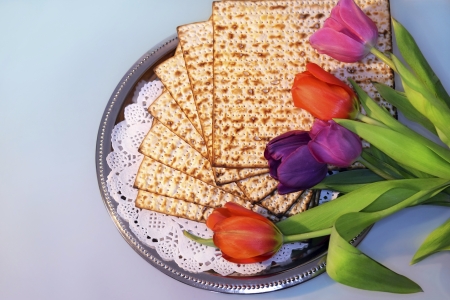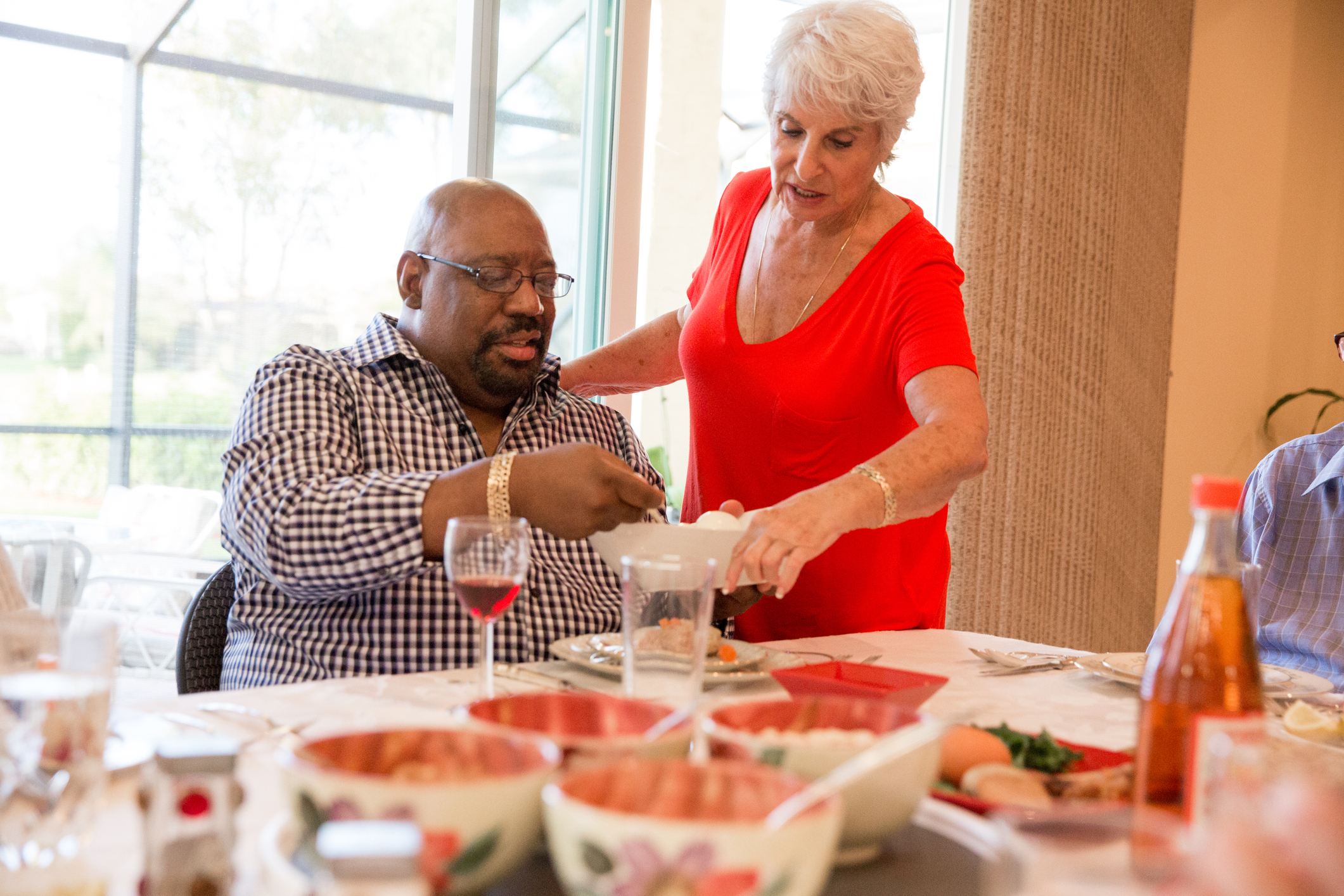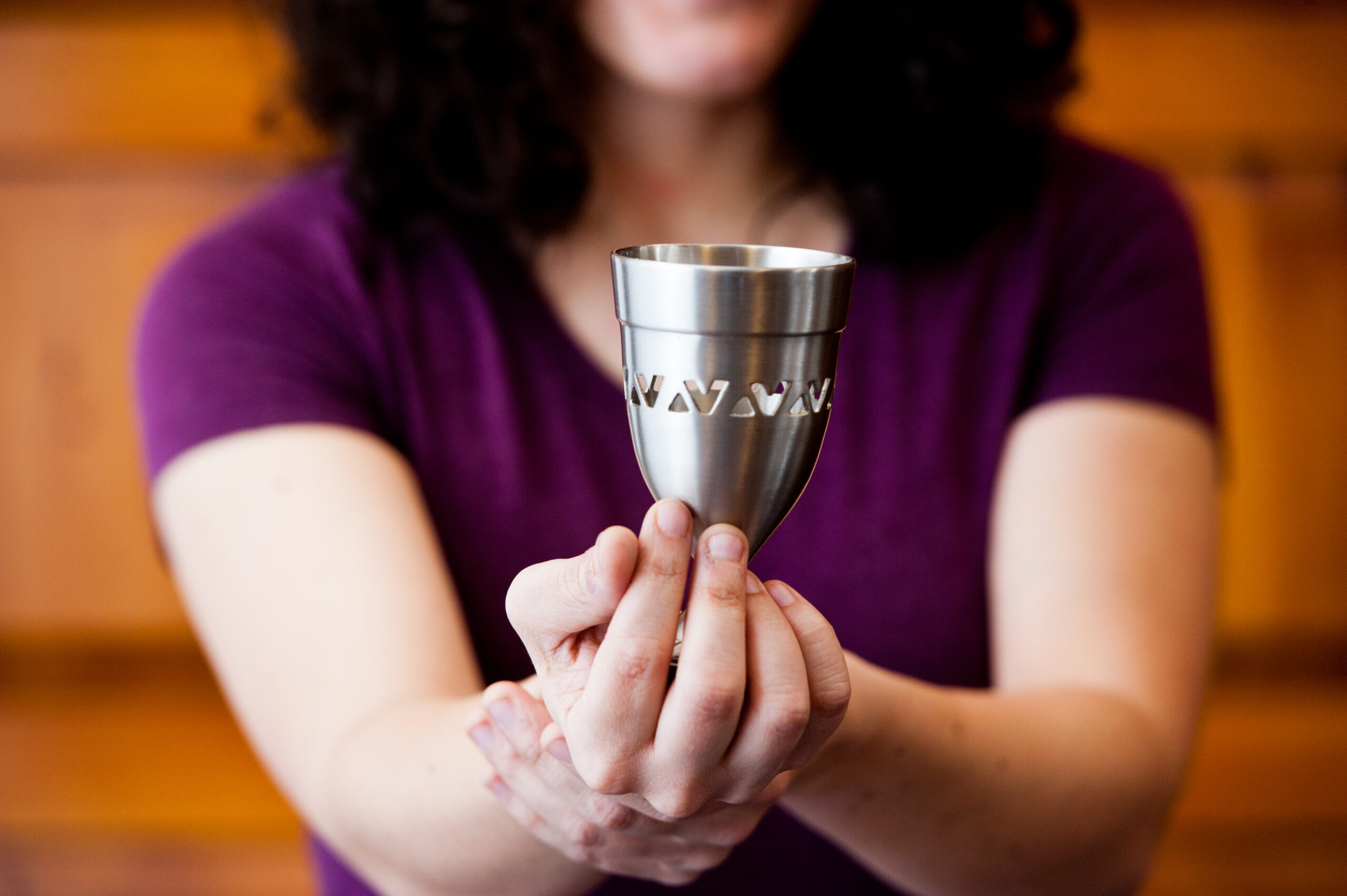While the four cups are central to the traditional haggadah, they are in many ways a symbol ready to be imbued with additional meanings. Aside from connecting the four cups to God’s four reiterations of the promise to take the Children out of Egypt, the traditional haggadah doesn’t have a lot to say about the four cups. In feminist haggadot the cups have been used to honor Jewish women, either individuals or grouped in various ways. Choose from the following example or write your own cup dedications, honoring members of your family or community.
Before the first cup read:
Tonight we will drink four cups of wine, traditionally linked to God’s four promises to Israel.
As it is written, “I will bring you out from under the burdens of Egypt. I will deliver you from bondage. I will redeem you with an outstretched arm and great judgments. I will take you to be my people and I will be your God.” (Exodus 6:6-7)
In this seder the four cups of wine are also linked to historical and living Jewish women, who in their own eras have acted as God’s partners in fulfilling the divine promises of redemption and freedom.
As it is written, “It was for the sake of the righteous women of that generation that we were redeemed from Egypt.” (Babylonian Talmud, Sotah 9b)
The First Cup
V’hotzeiti etchem mitachat sivlot Mitzrayim
“…I will bring you out from under the burdens of Egypt” (Exodus 6:6)
The first cup we drink tonight is linked to the verse from Exodus which tells of God’s promise to bring the Israelites out from under the burdens of Egypt. With this cup we honor Jewish women throughout history who worked to bring Jews out from under the burdens of poverty, oppression and antisemitism in the many Egypts where Jews have lived.
We dedicate this cup to: Dona Gracia Nasi, Emma Lazarus, Hannah Greenebaum Solomon, Bertha Pappenheim, and Rachel Auerbach.
Guidance: Invite people around the table to add names of women to honor with this cup. Select and read a biography of one of the above women. Alternatively, choose a woman from your own family or community and share her story.
The Second Cup
V’hitzalti etchem mei-avodatam
“I will deliver you from under their bondage” (Exodus 6:6)
The second cup recalls God’s promise to deliver the slaves from their bondage. With this cup, we honor women who used their own experiences of “the narrow places” to empower others to deliver themselves from bondage.
We dedicate this cup to: Glikl of Hameln, Pauline Newman, Rose Schneiderman, Lillian Wald, Manya Wilbushewitch Shochat.
Guidance: Invite people around the table to add names of women to honor with this cup. Select and read a biography of one of the above women. Alternatively, choose a woman from your own family or community and share her story.
The Third Cup
V’ga-alti etchem bizro-a n’tuya uvish’fatim g’dolim
“And I will redeem you with an outstretched arm and with great judgments” (Exodus 6:6)
The third cup we drink tonight is linked to the verse from Exodus which tells of God’s promise to redeem Israel with an outstretched arm and with great judgements. As the “outstretched arm” is a manifestation of God’s power, we recall how Jewish women who used their power and strength to make real this Divine promise of redemption. We dedicate this cup to: Henrietta Szold, Rachel Kagan, Justine Wise Polier, Bella Abzug.
Invite people around the table to add names of women to honor with this cup. Select and read a biography of one of the above women. Alternatively, choose a woman from your own family or community and share her story.
The Fourth Cup
V’lakachti etchem li l’am v’hayiti lachem leilohim
“And I will take you to be my people and I will be your God” (Exodus 6:7)
The fourth cup we drink tonight is linked to the verse from Exodus which tells of God’s promise to create a special relationship with Israel. We therefore honor women who, by teaching Jewish texts and promoting Jewish education, have brought individual Jews into a relationship with God and the Jewish people. We dedicate this cup to: Asenath Bat Samuel Barazani, Rachel Morpugo, Rebecca Gratz, Judith Kaplan Eisenstein, Nechama Leibowitz.
Invite people around the table to add names of women to honor with this cup. Select and read a biography of one of the above women. Alternatively, choose a woman from your own family or community and share her story.













